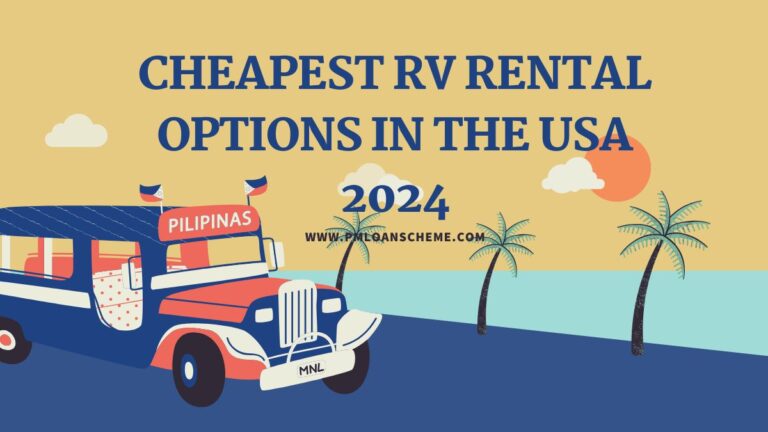What is first-time homebuyer ?
A first-time homebuyer is anyone purchasing a primary residence for the first time. This home is considered the buyer’s principal residence, meaning it’s the main place where they live. While many think of a traditional house as a principal residence, it can also include less conventional homes, like a houseboat, if it’s used as the buyer’s primary living space.

In this article, we’ll explore what it means to be a first-time homebuyer, the various government programs available to assist, and how organizations like Fannie Mae and the Federal Housing Administration (FHA) define and support first-time buyers.
Who Qualifies as a First-Time Homebuyer?
The U.S. Department of Housing and Urban Development (HUD) expands the definition of a first-time homebuyer beyond just someone purchasing a home for the first time. According to HUD, you are considered a first-time homebuyer if you meet one of the following conditions:
- Haven’t owned a principal residence in the last three years leading up to the purchase.
- Never owned a primary residence, even if your spouse has owned one.
- Single parents who have only owned a home with an ex-spouse.
- Displaced homemakers who have only owned a home with a spouse.
- Own a property that doesn’t meet local or state building codes and can’t be brought up to code without extensive renovations.
First-time homebuyers meeting any of these criteria may qualify for government-backed programs that offer financial assistance, lower down payments, and reduced interest rates.
Benefits of Being a First-Time Home Buyer
There are numerous advantages to being classified as a first-time home buyer, especially when it comes to financing. These include:
- Lower Down Payment Options: Many lenders offer mortgage options with a down payment as low as 3% for first-time buyers.
- Down Payment Assistance Programs (DPAs): These programs provide grants or low-interest loans to help cover your down payment or closing costs.
- Tax Credits: Some states offer tax benefits or credits for first-time home buyers, which can help reduce your overall tax burden.
- Mortgage Assistance Programs: Federally backed programs such as FHA, VA, and USDA loans often cater to first-time buyers by offering more flexible credit score requirements, lower down payments, and competitive interest rates.
Fannie Mae’s Definition of a First-Time Homebuyer
Fannie Mae, the Federal National Mortgage Association, defines a first-time homebuyer as someone who has not owned a residential property in the last three years. The organization aims to help more Americans achieve homeownership, particularly those with lower income or non-traditional sources of income.
One of Fannie Mae’s key programs is HomeReady, which assists first-time homebuyers with down payments as low as 3% and offers options for those with unconventional income. It’s an excellent choice for buyers who may not qualify for standard loan programs.
While Fannie Mae doesn’t directly issue mortgages, it purchases loans from banks, guarantees them, and sells them on the secondary market. This process encourages lenders to approve more buyers, even those with financial challenges, by minimizing the risk.
FHA Loans for First-Time Homebuyers
The Federal Housing Administration (FHA) has been helping first-time homebuyers since 1934. Their programs aren’t limited to first-time buyers, but they are particularly beneficial for those who may have difficulty qualifying for a conventional mortgage. FHA loans allow qualified applicants to make a down payment as low as 3.5%, and they have more lenient credit requirements compared to traditional loans.
The FHA also provides:
- Reduced closing costs
- Assistance for seniors to stay in their homes
- Help for homeowners to finance energy-efficient improvements
The FHA doesn’t issue loans directly. Instead, it backs mortgages from FHA-approved private lenders, ensuring that borrowers with lower credit scores or financial limitations can still secure home loans.
USDA Benefits for Rural Homebuyers
The U.S. Department of Agriculture (USDA) provides homeownership assistance to those buying or upgrading homes in rural areas. Their Single Family Housing Guaranteed Loan Program offers up to 100% financing, meaning eligible buyers may not need to make a down payment.
This program is designed to help low- to moderate-income buyers, although applicants can earn up to 115% of the national median income and still qualify. Like FHA loans, USDA loans are guarantees made to private lenders, allowing them to offer more favorable terms.
VA Loans for Veterans and Active Duty Military
The U.S. Department of Veterans Affairs (VA) offers excellent benefits for veterans, active-duty military personnel, and surviving spouses looking to buy their first home. VA loans provide competitive interest rates and typically do not require a down payment. One significant advantage is that VA loans do not require private mortgage insurance (PMI), making them highly affordable for eligible borrowers.
Additionally, the VA can assist borrowers struggling to make mortgage payments by negotiating with lenders on their behalf. This support helps ensure veterans can remain in their homes even during financial difficulties.
Lender-Sponsored Programs
Many lenders offer specific incentives for first-time homebuyers, often backed by government programs. These perks include:
- Grants or forgivable loans for down payments or closing costs, especially for buyers with low to moderate incomes.
- Closing cost assistance, which may not require repayment as long as the homeowner remains in the property for a certain period.
These lender-specific benefits can vary depending on location, the buyer’s financial situation, and other factors. It’s wise to explore options with your lender to determine what support may be available.
IRS Benefits for First-Time Homebuyers
In addition to government-backed loans, the IRS provides tax benefits for first-time homebuyers. If you’re buying your first home, you may withdraw up to $10,000 from an IRA without incurring the typical 10% early withdrawal penalty, as long as the funds are used for purchasing your principal residence.
For married couples, the limit applies to each spouse separately, allowing them to withdraw up to $20,000 combined for their home purchase. It’s important to note that this is a lifetime limit, meaning you can only take advantage of this benefit once.
Steps to Buying Your First Home
Let’s walk through the essential steps of the home-buying process to ensure you’re well-prepared.
1. Assess Your Financial Health
Before you start house hunting, you need a clear understanding of your financial situation. Check your credit score, pay off any outstanding debts, and save for a down payment. Lenders typically look for a credit score of at least 620 to qualify for most mortgages, but government-backed loans like FHA may have lower requirements.
2. Determine How Much House You Can Afford
It’s important to establish a realistic budget before diving into the real estate market. A general rule is to spend no more than 30% of your monthly income on housing expenses. Utilize online mortgage calculators to estimate your monthly payments, factoring in property taxes, insurance, and any homeowner’s association fees.
3. Get Pre-Approved for a Mortgage
Obtaining a mortgage pre-approval is crucial for first-time home buyers. It shows sellers that you’re a serious buyer and gives you a clear idea of how much a lender is willing to loan you. Keep in mind that being pre-approved does not guarantee you’ll secure a mortgage, but it’s an important first step.
4. Find a Real Estate Agent
Having a knowledgeable real estate agent on your side can make a big difference. They will guide you through the process, help you find properties that fit your budget and criteria, and negotiate on your behalf.
5. Start House Hunting
Once you’ve been pre-approved and have an agent, you can start your search. Be sure to consider your needs, including the number of bedrooms, square footage, location, and any future plans that might impact your living situation.
6. Make an Offer
When you find the perfect home, your agent will help you make a competitive offer based on comparable properties, market conditions, and your budget. Offers often include contingencies like home inspections and financing, which can protect you during the process.
7. Get a Home Inspection
A home inspection is vital to ensure there are no underlying issues with the property. If significant problems are found, you may be able to renegotiate the purchase price or request repairs.
8. Secure Financing
Once your offer is accepted, you’ll need to finalize your mortgage. This involves submitting the necessary paperwork, undergoing the underwriting process, and locking in an interest rate.
9. Close the Deal
The closing process typically takes 30 to 45 days. During this period, you’ll work with your agent, lender, and closing agent to finalize the paperwork. On closing day, you’ll sign documents, transfer funds, and receive the keys to your new home!
Frequently Asked Questions (FAQ) for First-Time Home Buyers
Who qualifies as a first-time home buyer?
A first-time home buyer is typically someone who has not owned a primary residence in the past three years. You can also qualify if you’ve owned a home with a spouse but are now single, or if you’ve owned a home that didn’t meet local building codes and couldn’t be brought up to code without significant renovation costs.
How much down payment is required for first-time home buyers?
The amount of down payment depends on the loan program. Conventional loans typically require 5% to 20% down, but first-time buyers may qualify for loans with lower down payments. For example, FHA loans allow down payments as low as 3.5%, and some conventional loans offer 3% down for qualified buyers.
What is mortgage pre-approval, and why is it important?
Mortgage pre-approval is a process where a lender reviews your financial information and determines how much money they are willing to lend you. It’s crucial because it shows sellers that you’re a serious buyer and helps you understand how much home you can afford before you start shopping.
Are there any programs that help first-time home buyers?
Yes, there are several programs designed specifically for first-time home buyers, such as FHA loans, VA loans (for veterans), USDA loans for rural areas, and state or local down payment assistance programs (DPAs) that offer grants or low-interest loans to cover upfront costs.
What are closing costs, and how much should I expect to pay?
Closing costs are fees associated with finalizing a real estate transaction. These include lender fees, title insurance, appraisal fees, and attorney fees. As a first-time buyer, you can expect closing costs to range from 2% to 5% of the home’s purchase price. Some programs may help cover these costs.
What should I look for during a home inspection?
A home inspection will assess the condition of the property’s structure, foundation, roof, plumbing, electrical systems, HVAC, and more. Pay special attention to major issues like roof damage, water leaks, foundation problems, or outdated electrical systems. If serious problems are found, you may renegotiate with the seller.
Can I afford a home if I have student loan debt?
Yes, having student loan debt doesn’t necessarily disqualify you from buying a home. However, lenders will factor in your debt-to-income (DTI) ratio, which compares your total monthly debt payments (including student loans) to your income. FHA loans, for example, often allow a higher DTI ratio compared to conventional loans.
What is private mortgage insurance (PMI), and do I need it?
Private mortgage insurance (PMI) is required if you put down less than 20% on a conventional loan. PMI protects the lender in case you default on the loan. It’s typically a monthly fee added to your mortgage payment. Once you reach 20% equity in your home, you can request that PMI be removed.
How long does it take to buy a home?
The time it takes to buy a home can vary, but on average, it takes about 30 to 45 days from making an offer to closing. The timeline includes getting pre-approved, finding a home, making an offer, securing financing, and completing the closing process.
What if I change my mind after making an offer on a house?
Most offers include contingencies, such as financing and home inspections, that allow you to back out of the deal under certain conditions without losing your earnest money. If your offer is not contingent, backing out could result in the loss of your deposit or other penalties.
How much house can I afford?
A good rule of thumb is to spend no more than 30% of your monthly income on housing expenses. However, the amount you can afford depends on your income, credit score, down payment, and other debts. Using an online mortgage calculator can help you estimate how much you can afford.
Do I need a real estate agent as a first-time buyer?
While it’s not required, having a real estate agent can make the home buying process easier. Agents provide valuable insights, help you find properties within your budget, negotiate offers, and guide you through paperwork and legal procedures. Their expertise can be especially helpful for first-time buyers.
What is the difference between pre-qualification and pre-approval?
Pre-qualification is an informal estimate of how much you can borrow based on basic financial information you provide. Pre-approval, on the other hand, is a more thorough process where the lender verifies your financial documents and offers a conditional commitment to lend you a specific amount.
Should I buy a home if the market is hot?
In a hot market, home prices are higher, and there may be bidding wars. While it may be challenging to find the perfect home, it’s still possible to make a good investment. If you’re financially ready, prepared to act quickly, and work with a skilled agent, you can succeed in a competitive market.
How can I improve my chances of getting a mortgage?
To improve your chances of getting approved for a mortgage, maintain a good credit score (ideally 620 or higher), save for a down payment, and lower your debt-to-income ratio. Paying down debts, avoiding new lines of credit, and having steady employment also improve your chances of approval.
Conclusion
As a first-time home buyer, it’s natural to have a lot of questions. Understanding the process and the available resources will help you make informed decisions and avoid common mistakes. Be sure to work with professionals like real estate agents and mortgage lenders to guide you through this exciting journey.


